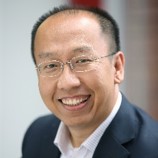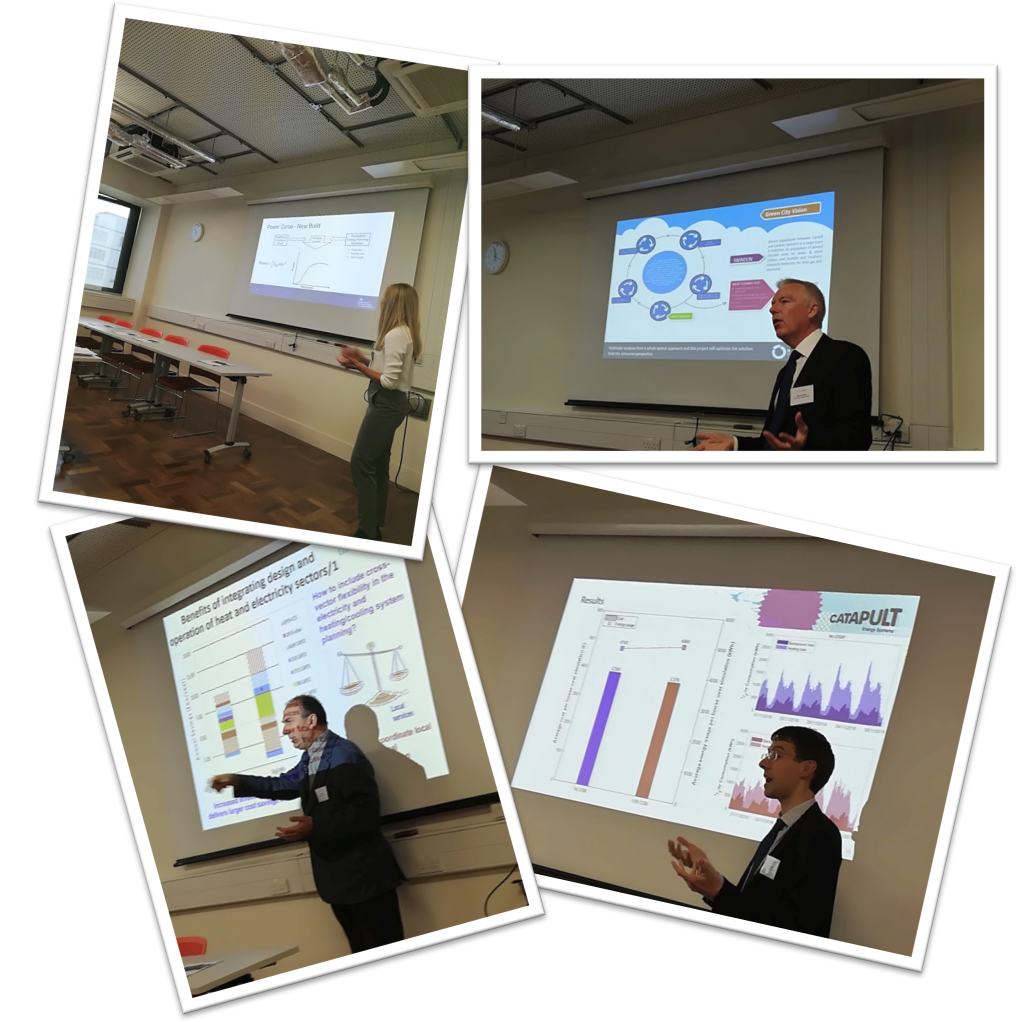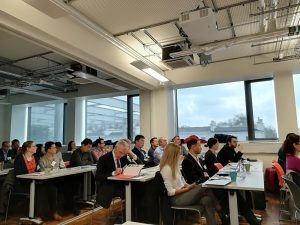About the Authors:
 Jianzhong Wu is a Professor of Multi-Vector Energy Systems and Head of Department of Electrical and Electronic Engineering at Cardiff University.
Jianzhong Wu is a Professor of Multi-Vector Energy Systems and Head of Department of Electrical and Electronic Engineering at Cardiff University.
He is Co-Director of Supergen Energy Networks Hub , Co-Director of INCOSE UK Energy Systems Interest Group, a member of Wales Smart Energy System Group, the Scottish Power Energy Networks Strategic Stakeholder Panel for England and Wales, and the Academic Promotions Committee of Cardiff University.
Contact details: WuJ5@cardiff.ac.uk Prof. Jianzhong Wu’s Profile
 Karolina Rucinska is a PhD student and a research assistant at Cardiff University and provides administrative support to the Hub at Cardiff University.
Karolina Rucinska is a PhD student and a research assistant at Cardiff University and provides administrative support to the Hub at Cardiff University.
Contact details: RucinskaKA@cardiff.ac.uk Miss Karolina Rucinska’s Profile
The energy trilemma (energy security, environmental impact and social cost) present various complex interconnected challenges. These challenges extend throughout the UK and have a significant international bearing. There is vast diversity in challenges faced regionally due to historical, geographic, political, economic and cultural reasons. As technology and society change so do these challenges. Therefore energy networks planning, design and operation need to adapt.
Whole-systems approach to energy networks research is not considered the norm. Comprehensive knowledge of the interconnected and interdependent nature of energy network infrastructure is simply not available. The recent development of local energy systems and global energy internet bring further uncertainties and challenges to the development of our energy systems.
Currently, there is a lack of:
- modelling experience and skills
- replicable models
- commercial software
- awareness of the value of integrated multi-energy networks in the UK.
To better understand the relationships among different energy vector networks, ICT, policy, markets, and risk need to shape future energy development. Through understanding how external factors may lead to significant changes in the way energy networks behave, we can plan and operate accordingly.
To address the issues above the EPSRC Supergen Energy Networks Hub and the INCOSE UK Energy Systems Interest Group hosted a joint workshop to investigate modelling for Integrated Multi-Energy Networks. The workshop on the 12th April saw 31 invited participants from academia, government, industry and independent organisations come together to share current best practices in multi-energy system modelling and to discuss how to tackle the barriers and identify innovation gaps.
The first session of the workshop, chaired by Prof Jianzhong Wu from Cardiff University, was devoted to sharing experiences and practices of modelling. It provided an insight into the challenges of modelling complex systems while giving examples of new tools, models and projects. There were several interesting presentations by:
- BEIS (Dr Noramalina Mansor, top left photo),
- Energy Systems Catapult (Dr David Wyatt, bottom right),
- West and Wales Utilities (Mr Chris Clark, top right photo), and
academia (Prof Mark Barret, UCL; Prof. Goran Strbac, bottom left photo, Imperial College London; Dr Sara Walker, Newcastle University and Dr Meysam Qadrdan, Cardiff University).

The second session considered how to tackle some of the pressing challenges, difficulties and uncertainties faced by energy systems modellers and the wider community. This session helped to identify research gaps, questions and potential research topics within energy networks.
There were lots of open discussions led by Professor Phil Taylor, Director of the Supergen Energy Networks Hub on how to move forward in terms of research and practice within energy networks modelling.
 The suggestions were to focus on demonstration projects, modelling of extreme events as well as the design of simpler but interconnected models among other things. Moving forward, the participants expressed an interest in another set of such workshops, with a focus on balancing the needs of the local and national systems.
The suggestions were to focus on demonstration projects, modelling of extreme events as well as the design of simpler but interconnected models among other things. Moving forward, the participants expressed an interest in another set of such workshops, with a focus on balancing the needs of the local and national systems.